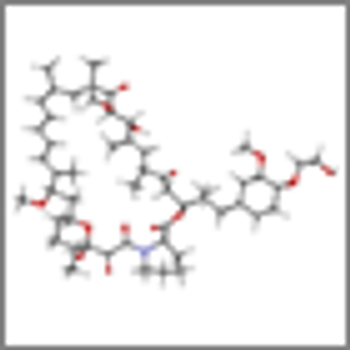
Use of a VD regimen alone to treat patients with transplant-ineligible multiple myeloma was not inferior to VTD or VMP regimens, according to the UPFRONT trial.

Your AI-Trained Oncology Knowledge Connection!


Use of a VD regimen alone to treat patients with transplant-ineligible multiple myeloma was not inferior to VTD or VMP regimens, according to the UPFRONT trial.

Adding the oral NK1 antagonist aprepitant to an oxaliplatin-based chemotherapy regimen effectively reduced nausea and vomiting in colorectal cancer patients.

A new study has found that in patients diagnosed with metastatic colorectal cancer, a low BMI could be a poor prognostic factor.

Researchers have discovered a protein encoded by the GPC1 gene present on cancer exomes that may be used as a diagnostic tool to detect early pancreatic cancer.

Women with ovarian cancer with ADAMTS mutations were significantly more sensitive to chemotherapy and had longer platinum-free durations.

Survivors of thyroid cancer had a higher risk of unemployment at 2 years post-diagnosis and decreased income at both 2 and 4 years, according to the results of a study.

New data suggests that cutaneous melanomas can be classified into four subtypes based on the pattern of the most prevalent significantly mutated genes.

Measuring ERCC1 and TS gene expression could help physicians better manage metastatic colorectal cancer patients with the most beneficial chemotherapy.

Use of transcriptional data taken from the FNA of thyroid nodules could help in predicting recurrence post surgery in certain thyroid cancer patients.

Patients with treatment-naive metastatic pancreatic cancer assigned to treatment with gemcitabine plus rigosertib did not have any improvement in tumor response or survival compared with treatment with gemcitabine alone.

Zoledronic acid did not have any antitumor effect in asymptomatic multiple myeloma patients in relapse, but did delay symptomatic progression and bone disease.

Using simulation modeling, researchers found that higher adenoma detection rates were linked with lower lifetime colorectal cancer incidence and mortality.

Treatment with lenalidomide and the HDAC inhibitor vorinostat may be effective as a maintenance therapy in multiple myeloma patients after autologous transplant.

Two subgroup analyses of the SELECT trial could help clarify which differentiated thyroid carcinoma patients will benefit most from lenvatinib.

A study showed that prostate cancer patients with bone metastases could have a long-term response to ADT and an acceptable quality of life for 10 or more years.

First-line lenvatinib may improve progression-free survival in patients with 131I-refractory differentiated thyroid cancer with no prior history of VEGF therapy.

Adding everolimus to sorafenib at the time of progression of advanced radio-iodine refractory differentiated thyroid carcinoma was tolerable and active.

With a high sensitivity for detecting disease recurrence, follow-up imaging using PET/CT may help to more successfully guide the management of NHL patients at risk for disease recurrence.

A study found that patients with myeloproliferative neoplasms have a higher overall mortality rate due to death from hematologic malignancies and infections.

Aspirin use after a colorectal cancer diagnosis was independently associated with improved rates of both cancer-specific and overall survival.

Treating patients with unresectable colorectal liver metastases with radiofrequency ablation and chemotherapy resulted in improved long-term overall survival.

Men with prostate cancer assigned to intermittent ADT experienced more ischemic and thrombotic events than did men assigned to continuous ADT.

Neoadjuvant mFOLFOX6 plus radiation improved pathologic complete response in advanced rectal cancer patients compared with 5-FU/radiation or mFOLFOX6 alone.

Cabozantinib failed to significantly increase overall survival compared with placebo in patients with medullary thyroid carcinoma, according to the EXAM study.

Assigning prostate cancer patients in relapse after prostatectomy to ADT and radiation therapy delayed disease progression compared to radiation therapy alone.

Pembrolizumab demonstrated a 24.8% overall response rate in patients with recurrent or metastatic squamous cell carcinoma of the head and neck.

Researchers have identified a new histologic subset of metastatic castration-resistant prostate cancer that is refractory to androgen receptor inhibition.

Immediate ADT improved overall survival compared with delayed ADT in prostate cancer patients with a rising prostate-specific antigen level.

Tumor growth rate analysis may be a valuable efficacy parameter to consider in patients with sorafenib-treated, radioiodine-refractory differentiated thyroid cancer.

Increased levels of vitamin D were associated with improved overall survival rates in metastatic colorectal cancer patients treated as part of CALGB/SWOG 80405.